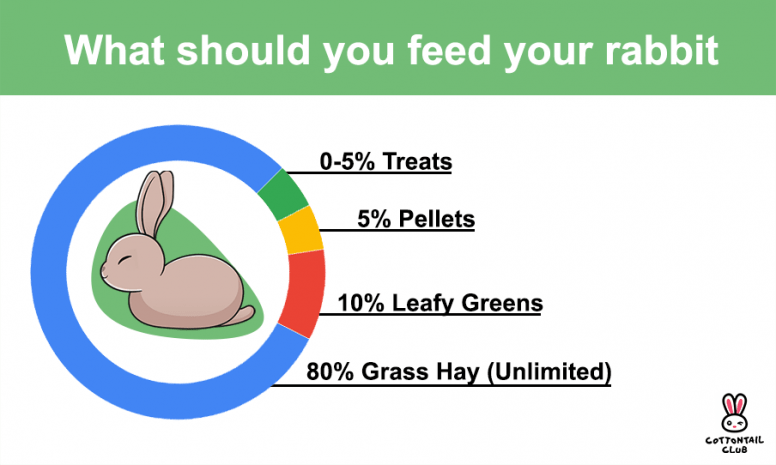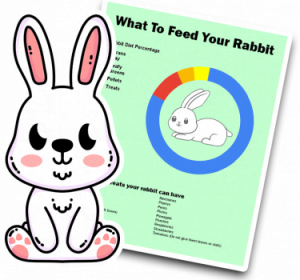
Many people are surprised to learn that rabbits can live for up to 10 years. This fact alone makes it important for pet owners to consider their long-term commitment when deciding whether to bring a rabbit into their home.
While rabbits can be delightful companions, it’s important to remember that they require a lot of care and attention in order to live healthy and happy lives.
By understanding the average lifespan of a rabbit, pet owners can be better prepared for the commitment they are making when bringing a bunny into their family.
The breed of the rabbit can have a significant impact on its lifespan. Larger breeds tend to have shorter lifespans, while smaller breeds tend to live longer. The average lifespan of a domestic rabbit ranges from 8 to 12 years, while some breeds, such as the Holland Lop, have been known to live up to 15 years. Researching the breed you are interested in and its typical lifespan is important.
A proper diet is crucial to a rabbit’s overall health and lifespan. A well-balanced diet should consist of hay, fresh vegetables, and a small number of pellets. A diet high in sugar and fat can lead to health problems and a shorter lifespan.
The living conditions of a rabbit can also have an impact on its lifespan. Rabbits kept in clean, spacious environments with proper ventilation and lighting tend to live longer than those kept in cramped or dirty conditions. It is essential to provide your rabbit with plenty of space to move around and play.
A rabbit’s overall health is a key factor in determining its lifespan. Regular veterinary check-ups, vaccinations, and preventative care can help ensure your rabbit lives long and healthy. Common health issues affecting a rabbit’s lifespan include dental problems, gastrointestinal stasis, and respiratory infections.
As rabbits age, several signs indicate they may be reaching the end of their lifespan. Some of these signs include decreased activity, loss of appetite, and changes in behavior. It is crucial to monitor your rabbit’s health closely as they age and to seek veterinary care if you notice any concerning symptoms.
| Rabbit Breed | Average Lifespan Range (Living Indoors) |
|---|---|
| Wild Rabbit | 6 – 7 years |
| Dwarf Rabbit | 8 – 9 years |
| Giant Rabbit | 4 – 6 years |
| Rex Rabbit | 5 – 11 years |
| Polish Rabbit | 8 – 10 years |
| Lop Eared Rabbit | 5 – 10 years |
| Lionhead Rabbit | 7 – 9 years |
| Holland Lop | 7 – 10 years |
| Mini Lop | 7-14 years |
| Dutch Rabbit | 5 – 8 years |
| Californian | 5 – 10 years |
| Flemish Giant | 8 – 10 years |
There are a few main factors when it comes to increasing your pet rabbit’s time with you, these are Neutering/Spaying, Dietary Needs, Exercise, Interaction & Environment.
Each area of your rabbit’s life needs to be equally balanced, doing so will lead to a much healthier lifestyle.
Unfortunately, female rabbits have a 70% chance of developing uterine, womb, or mammary cancer when they aren’t spayed from a young age. Male rabbits may also develop testicular cancer which can occur later in adult life.
Female rabbits will have their ovaries removed as standard which removes their ability of breeding but can be done by any professional exotic veterinarian. Whereas male rabbits will have their testicles removed.
If your rabbit stays on a healthy diet and avoids any levels of obesity their life expectancy will typically increase.
One of the oldest domestic rabbits which was 17 years and 2 weeks old was said to have had no treats, fruits, and vegetables and only lived on high-quality grass hay, and pellets.
However, nutrition is one of the most important factors in your rabbit’s health, as such, we recommend a balance of treats, fruits, and pellets. It could be argued that this was simply luck of the draw as many rabbits thrive on fresh greens and fruit.
Your vet may supply you with medicinal vitamins or specific diet plans to help with this.

We highly suggest not feeding your rabbit only pellets, this can be extremely unhealthy and can lead to a short life span and weight issues.
Much like ourselves, rabbits require lots of space to exercise in. We recommend having a full free roam rabbit that has the ability to run around as and when they need it. However, if you have limited space they should have at minimum 4 hours of exercise a day.
Rabbits are most active between dawn and dusk, so their 4 hours of exercise a day should be between those two periods of time. You can introduce tunnels, ramps, and toys into their play area to help stimulate them.
Rabbits should be kept in a well-ventilated and dry area living arrangement, we recommend keeping pet rabbits indoors as this can increase their lifespan by a few years.
As rabbits are naturally curious, creating the perfect enclosure can be a fun and expressive task when you involve your rabbit. We recommend meeting the following criteria:
It is very important to keep a calm household for your rabbit, they’re very prone to be scared as they are prey animals. This means they can die due to extreme amounts of stress and by going into shock.
This is why we do not suggest keeping a cat or dog with your rabbit, this doesn’t mean your rabbit cannot be around dogs and cats, as there are plenty of situations where this is viable. But you will need to be very careful based on their relationship, breeds, and temperament.
Additionally, you must be very careful with young children as they may cause your rabbit to attack in self-defense or hurt themselves when mishandled.
The average lifespan of a house rabbit, which is a domesticated rabbit that is kept as a pet, ranges from 8 to 12 years. However, with proper care and attention, some house rabbits have been known to live up to 15 years.
It is important to provide your house rabbit with a well-balanced diet, a clean and spacious living environment, and regular veterinary check-ups to ensure they live a long and healthy life.
Hazel was the oldest rabbit in 2009 and held the record in the Guinness Book of World Records after several vets declared their age was 14 as of March 13, 2008.
However, a new champion has come forward, Mick, the agouti rabbit who comes from Berwyn, Illinois, USA, was awarded the oldest rabbit by the Guinness World Records after his 16th birthday on 9th February 2019.
In terms of the past, the oldest prior was a Wild-born Flopsy from Australia who was born in 1964 and live for a whopping 18 years!

By entering your email address you agree to receive emails from Cottontailclub. We'll respect your privacy and you can unsubscribe at any time.